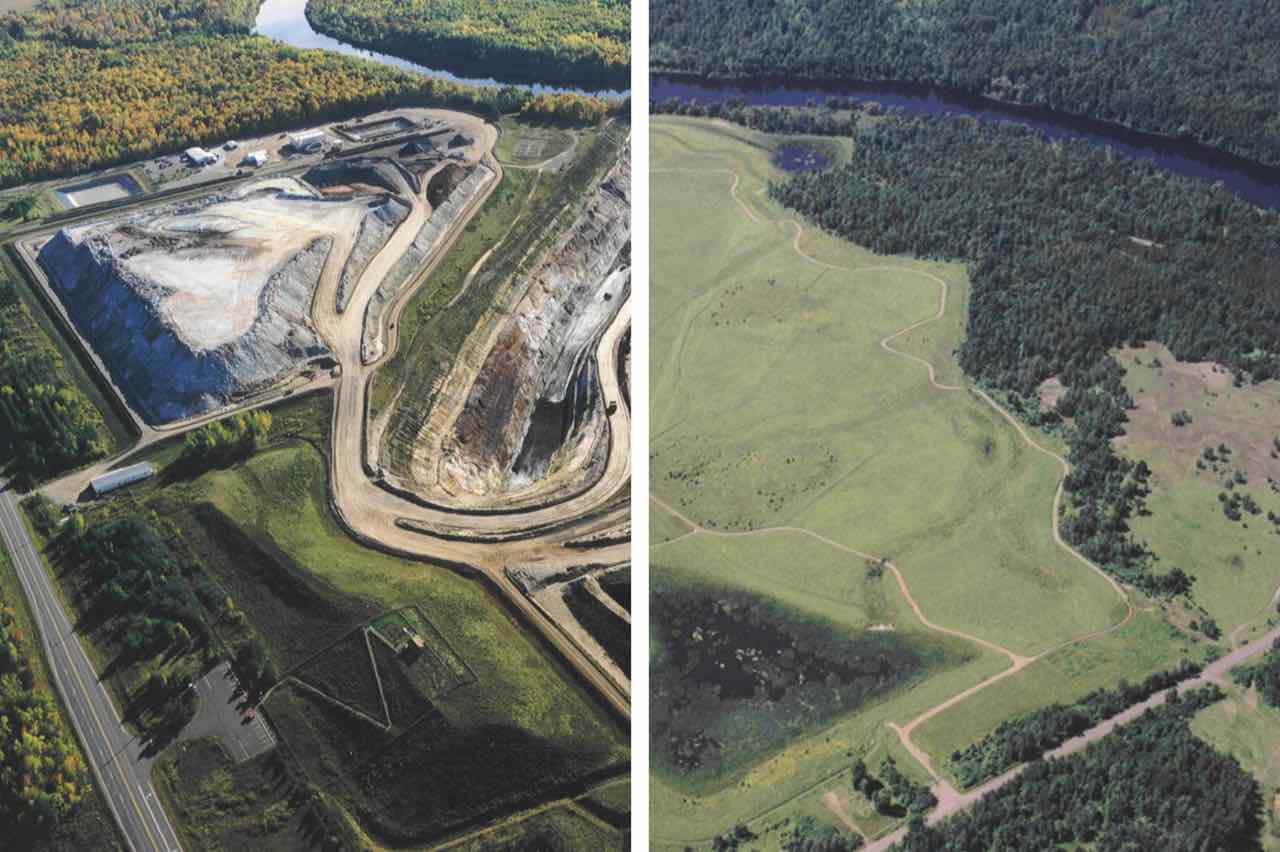
The many benefits of modern life, from medicine to computers and smartphones, wouldn’t be possible without mining metallic resources. Emerging industries such as electric vehicles that are needed to decarbonize the economy rely on metallic resources just as the health care system does to create antibiotics and MRI scanners. As we look to develop a more sustainable future, metallic mineral resources are essential and often under-recognized as a critical resource.
Our society needs to mine minerals and metals, but it must be done responsibly to protect water, air, and natural landscapes. With more than 40 years of experience in environmental consulting for mining operations, Foth’s scientists and engineers have the knowledge and expertise to guide companies through the complex regulatory process from getting a mine approved, to operating, reclaiming, and long-term monitoring when a mine is closed.
Guiding Companies Through the Process
Because the regulatory process is complicated, all the work undertaken by Foth, our clients, and other consulting partners must be thorough, rigorous, and adhere to strict standards from the earliest stages. Foth provides a comprehensive, strategic approach that integrates its science and engineering expertise with the mine owners’ executive teams, key decision makers, legal partners, and public affairs departments.
At the start, Foth works to understand local stakeholders’ interests in the project and anticipates the issues and challenges they may bring. In addition, federal agencies like the Army Corps of Engineers or the Environmental Protection Agency may be involved, as well as state regulatory bodies, municipal or county governments, and non-governmental organizations (NGOs). Native American treaty rights may also have to be addressed, depending on the location of the project.
Mining projects are often controversial and, because the public may associate mining operations with negative environmental effects, getting the necessary permits in place can take some time. Foth’s scientists and engineers understand the entire process and anticipate the needs of all parties, develop a strategic road map long before a project plan is submitted to regulatory agencies, and ensure environmental regulations are met or exceeded. The extensive planning process we use has a track record of reducing the length of time to obtain approvals.
Long-Term Success with the Flambeau Mine
The Flambeau project near Ladysmith, Wisconsin is an excellent example of mine development and closure and demonstrates that economic growth can occur with stringent environmental regulations. As lead environmental consultant, Foth ensured extensive environmental studies were completed to define baseline conditions and identify potential impacts.
Foth began working with the Flambeau Mining Company, a Rio Tinto subsidiary, in 1987 and assisted with the permitting, development, and closure of the copper and gold mine under Wisconsin’s new mine-permitting regulations. Foth developed the mine’s closure plan and managed the backfilling of mine wastes in a manner that protects the nearby Flambeau River. Foth’s involvement continues more than 30 years later as part of the post-operation monitoring.
Shortening the Timeline at the Eagle Mine
The Eagle project by Kennecott Eagle Minerals Company, a subsidiary of Rio Tinto, was the first mine to be successfully permitted under Michigan’s new nonferrous metallic mining law. The mine, a high-grade nickel and copper project, is now owned by Lundin Mining.
Located in Marquette County in Michigan’s Upper Peninsula, Kennecott hired Foth in 2004 to lead the preparation of permitting documents under new state rules. Along with developing the mine, air, storm water, and groundwater discharge permit applications, Foth prepared the environmental impact assessment and completed the engineering for major components of the project. Foth also produced plans for environmental monitoring, treatment and containment, reclamation and closure and contingency and financial assurance.
Foth’s integrated approach on the Eagle project helped trim the timeline to four years to get the necessary permits in place. The mine has since been expanded and has an excellent track record.
Creating Legislative Change
In 1998, the state of Wisconsin enacted a moratorium on sulfide-ore mining, and as a result, mining companies turned their attention elsewhere.
Wanting to make mining more viable in Wisconsin, Foth used its expertise and experience to advocate for change to the mining moratorium. We approached Wisconsin legislators and the Department of Natural Resources to discuss ways of bringing more certainty to the regulatory process. Our efforts were successful.
In 2017 Wisconsin amended the nonferrous metallic mining law to create more timely administration of the environmental review and permitting process, rescinded the moratorium, and created less ambiguity in the mining law. As such, Wisconsin now enjoys a more orderly regulatory process that maintains important environmental protections.
Looking Ahead
With decades of experience, Foth is committed to helping mining companies develop resources economically while protecting the environment. Foth’s expertise can help you navigate the regulatory waters, reduce the timeline for permitting, and successfully launch your mine project, however large or small.
By Steve Donohue, P.H., Vice President, Mining
Markets: Mining
Services: Environmental and Regulatory Services, Mining Services, Strategic Consulting and Planning

